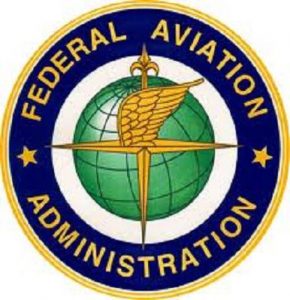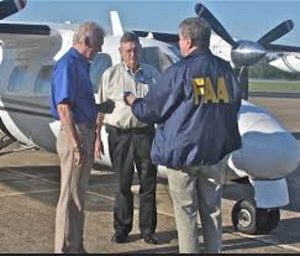When the FAA receives notice and evidence to show that a certificate holder (mechanic, repair station, air carrier, pilot etc.) may have violated one or more of the Federal Aviation Regulations (“FAR”), an FAA aviation safety inspector is assigned to perform an investigation. The inspector may contact the certificate holder informally (e.g. via phone, e-mail, and sometimes in-person). In other instances, the inspector will send the alleged violator a letter of investigation (“LOI”) advising that the FAA is investigating an alleged violation of the FAR.
Whether the certificate holder should respond to the inspector and, if so, how the certificate holder should respond are two of the most common questions raised by certificate holders under investigation.
What Is The FAA’s Perspective?
In order to determine whether or how to respond, it is important to understand the FAA’s perspective. Under the FAA’s current “compliance philosophy” (or “compliance oversight” as the FAA likes to refer to it), “[W]hen deviations from regulatory standards do occur, the FAA’s goal is to use the most effective means to return an individual or entity that holds an FAA certificate, approval, authorization, permit or license to full compliance and to prevent recurrence.”
This is different from the FAA’s old approach to violations which leaned heavily toward enforcement and punitive action (e.g. certificate suspensions and revocations). From my perspective, it is a certainly a more enlightened and appropriate approach to enforcement. And as the FAA explains
[t]he FAA recognizes that some deviations arise from factors such as flawed procedures, simple mistakes, lack of understanding, or diminished skills. The Agency believes that deviations of this nature can most effectively be corrected through root cause analysis and training, education or other appropriate improvements to procedures or training programs for regulated entities, which are documented and verified to ensure effectiveness.
This type of a resolution is a “compliance action”, as opposed to a legal enforcement action that results in certificate suspension/revocation or assessment of a civil penalty. In a nutshell, the FAA is talking about counseling and remedial training rather than enforcement.
When investigating a potential violation, FAA inspectors’ priorities are to (1) deal with the risk posed or created by the certificate holder and, only then, (2) determine if a violation has occurred. They are to assume that the matter can be resolved with a compliance action. However, inspectors are not obligated to resolve an investigation using a compliance action if the facts indicate that the situation does not qualify for this type of treatment.
To qualify for treatment as a compliance action, the inspector must determine that a certificate holder is both “willing and able” to comply with the goals of returning the certificate holder to compliance and ensuring future compliance.
How Does The FAA Inspector Investigate?
If the inspector contacts the certificate holder informally, he or she will likely explain the reason for the contact and the information the inspector is seeking. An LOI will typically start out by telling the recipient that the FAA is investigating “an occurrence which involved your operation” or “an incident that occurred” or “maintenance performed on N12345 on such and such a date.” It will then advise that the FAA believes the operation or conduct may be “contrary to Federal Aviation Regulations.”
Whether the inspector makes contact informally or via LOI, in both instances the certificate holder will be provided with the opportunity to “tell your side of the story.” Why? Because the inspector is trying to get all of the facts so he or she can perform the analysis necessary to determine what happened, why it happened, and whether the certificate holder is “willing and able” to comply with the regulations.
Do You Have To Respond?
If you receive an LOI or contact from an inspector, you must determine whether you are going to respond and, if you are, what you should say in your response. Frequently certificate holders believe they have to respond, especially in the case of an LOI which usually implies that a response is required within 10 days. However, that belief isn’t correct. No response is actually required. Additionally, thanks to the Pilot’s Bill of Rights, the FAA can no longer draw any adverse inferences from a failure to respond to the inspector or the LOI, such as that the certificate holder is exhibiting a poor compliance attitude.
But that doesn’t mean you shouldn’t respond. From a basic courtesy standpoint, it seems appropriate to respond. After all, no one likes to have their requests ignored. And more importantly, in order to take advantage of resolving the situation with a compliance action, the FAA inspector requires that a certificate holder talk to him or her to discuss the “how” and “why” the risk was created as well as options for making sure it doesn’t happen again. Without that information, it may be difficult for the inspector to determine whether the situation can be resolved with a compliance action.
Should You Respond?
From my perspective as an aviation attorney who defends certificate holders against FAA legal enforcement action, this approach raises concerns that the certificate holder will provide the inspector with information that could later be used against the certificate holder in an enforcement action. In the past, my typical advice to certificate holders was to either not speak with the inspector or to at least not volunteer any information that could later come back to bite the certificate holder. Under the current compliance philosophy, that isn’t necessarily the best advice.
Now a certificate holder must carefully analyze the situation to try and determine whether the situation will qualify for a compliance action before the certificate holder starts to volunteer information to the inspector. While resolution of the case through a compliance action is definitely preferable, the certificate holder should try and avoid disclosing information that could preclude a compliance action or that will put the certificate holder in a more difficult position if the FAA pursues legal enforcement action. Discussing the matter with a knowledgeable aviation attorney before you speak with the inspector can certainly assist in making this decision.
Options For Responding
 So, should you respond to the inspector or an LOI? Yes, if for no other reason than to acknowledge the inspector’s contact or your receipt of the LOI. But, should your response provide anything more than that acknowledgement? The lawyerly answer to that question is: it depends.
So, should you respond to the inspector or an LOI? Yes, if for no other reason than to acknowledge the inspector’s contact or your receipt of the LOI. But, should your response provide anything more than that acknowledgement? The lawyerly answer to that question is: it depends.
On the one hand, if you want the matter handled as a compliance action you will need to provide the inspector with the information he or she needs to do that. And in some situations, it may simply make sense to provide a more detailed explanation to the inspector. For example, if it is a case of mistaken identity or you have evidence that clearly proves the inspector is wrong, then submitting that information very well may force the inspector to close the investigation.
On the other hand, sometimes it makes sense to simply acknowledge the inspector’s request, advise that you don’t have anything to add, and offer to respond to any specific questions or requests the inspector may have as may be appropriate, preferably in writing. After all, by the time the inspector contacts you he or she has usually conducted some investigation and discovered enough evidence to determine that a violation may have occurred. So why disclose anything that could help the FAA’s case? And if the violation isn’t the type that can be handled with a compliance action, then explaining the situation to try and “make it go away” could, and likely would, later be used against you.
Conclusion
Whether, and how, you respond to an FAA investigation are strategic decisions. Since you are already in the FAA’s sights, consult with an aviation attorney before providing a response that tries to explain or address the FAA’s allegations. With the assistance of an aviation attorney you can prepare a response that may minimize investigation, help obtain a compliance action, or that will avoid providing admissions or other evidence that could later be used against you. And, at a minimum, an aviation attorney can run interference between you and the FAA.
The investigation is just the beginning of the enforcement process. And although your response to an investigation may not prevent the FAA from pursuing an enforcement action, how you respond can potentially have a significant impact on the outcome of the case. Make sure you respond wisely.

